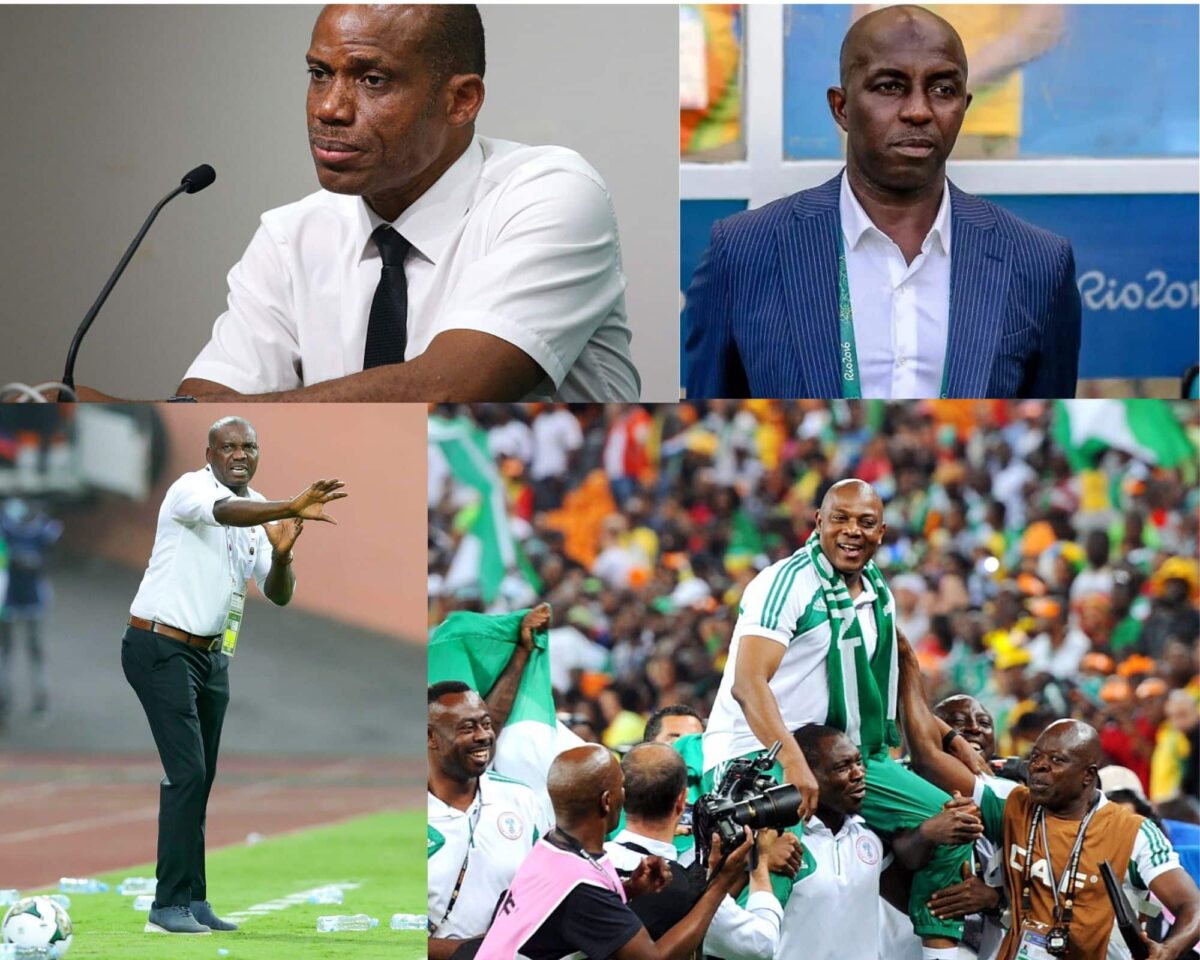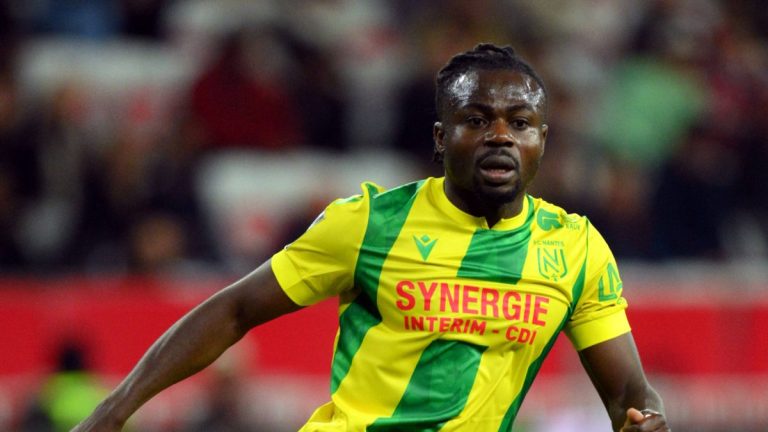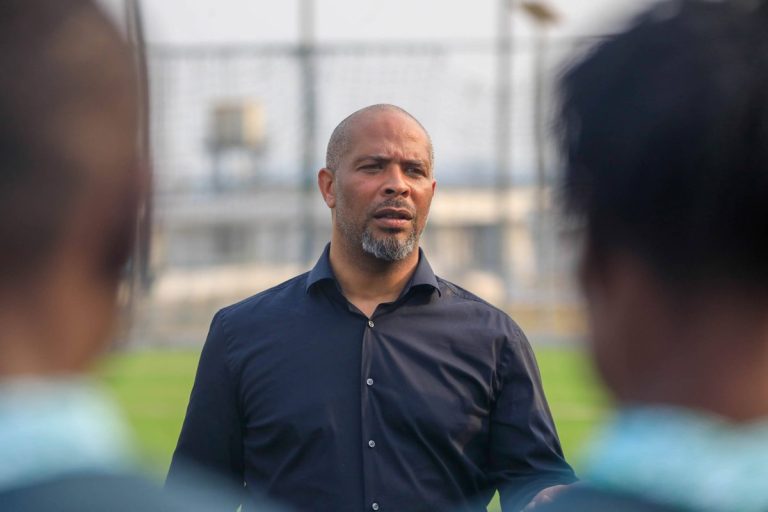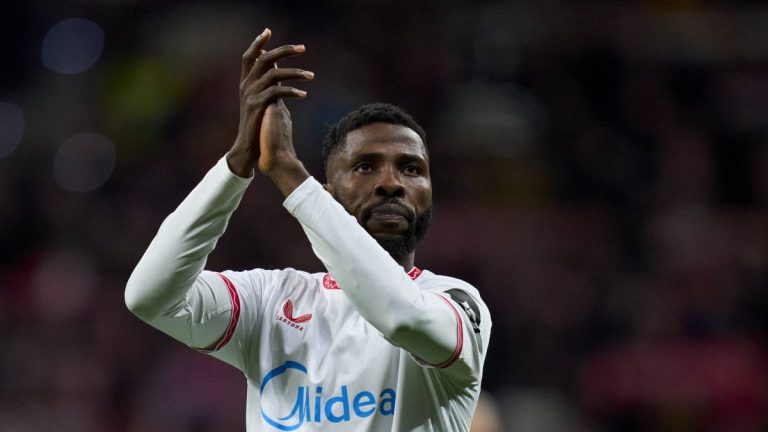It was announced late Monday afternoon that Finidi George, interim head coach of the Nigerian men's national football team in the aftermath of the 2024 Africa Cup of Nations (AFCON 2024) earlier this year, has now been appointed to the position in a substantive capacity.
“Finidi George, a member of the so-styled ‘Golden Generation’ that won the 1994 Africa Cup of Nations tournament in Tunisia and emerged as the second most entertaining team in Nigeria’s debut at the FIFA World Cup finals in USA the same year, won 62 caps for Nigeria, including featuring at the 1994 and 1998 FIFA World Cup finals,” a statement from the Nigeria Football Federation (NFF) read.
It was almost inevitable that, in highlighting the credentials of their new man, the NFF would make mention of what George accomplished as a player for the Super Eagles, specifically those continental and global achievements three decades ago which have since remained etched in the annals of the Nigerian game, never to be forgotten.
Those feats did not just spawn a whole generation of Nigerian football heroes, but it has now produced a growing list of coaches who have taken turns — some more than once — at the helm of the national team.
From Augustine Eguavoen and Stephen Keshi to Samson Siasia and Sunday Oliseh, there are tales — some cautionary, others inspirational — for Finidi George to learn from as he embraces and embarks on this fresh challenge.
Here is a summary of how those before him have fared.
Augustine Eguavoen
Eguavoen, with whom Finidi George struck up an understanding on the right side of Nigeria's famous 1994 side, has had three spells in charge of Nigeria. The first of which came after Nigeria had failed to qualify for the 2006 FIFA World Cup — their first absence from the competition since the country's 1994 debut. He succeeded a retired national star from an earlier era,
Christian Chukwu, and led the team to the 2006 AFCON, where bronze was secured. That outcome was deemed not successful enough, however, and Eguavoen was fired after the tournament, only to be almost immediately reappointed — and then fired again shortly.
He returned briefly in an uneventful caretaker spell after the 2010 World Cup, but his next stint — also as an interim — was a bit more extensive and noteworthy, though not very memorable.
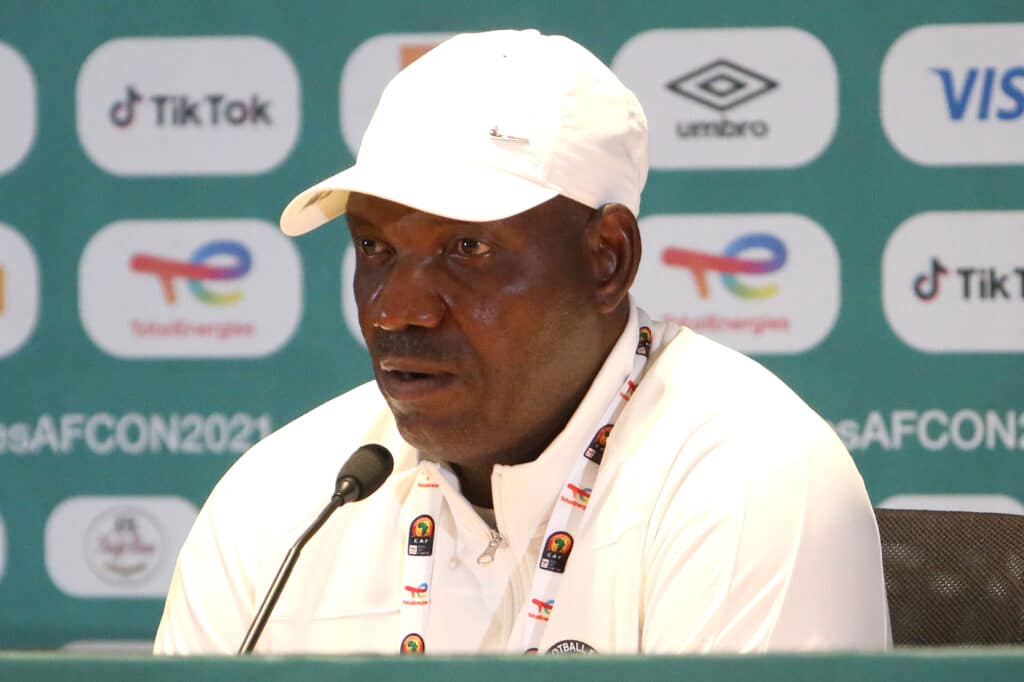
A perfect group stage run at the 2021 AFCON was followed by a shock Round of 16 exit, and the shot Eguavoen had to make amends for that continental-level disappointment with a ticket to Qatar 2022 was also missed, fluffing his lines on aggregate at the hands of rivals Ghana in the decisive play-off.
Stephen Keshi
The late Keshi always showed leadership qualities during his international playing career, especially during the nineties as an elder statesman in a team that had the Georges taking their first steps.
And while he enjoyed a largely solid start at the helm of other African national teams — mainly Togo, but also Mali — it was not until 2011 that his homeland gave him the chance to take charge of the Super Eagles.
The next three years proved hugely successful, perhaps the team's best streak in recent memory, as Keshi guided them to a third Nations Cup title and took them past the group stage of the World Cup for the first time in 16 years.
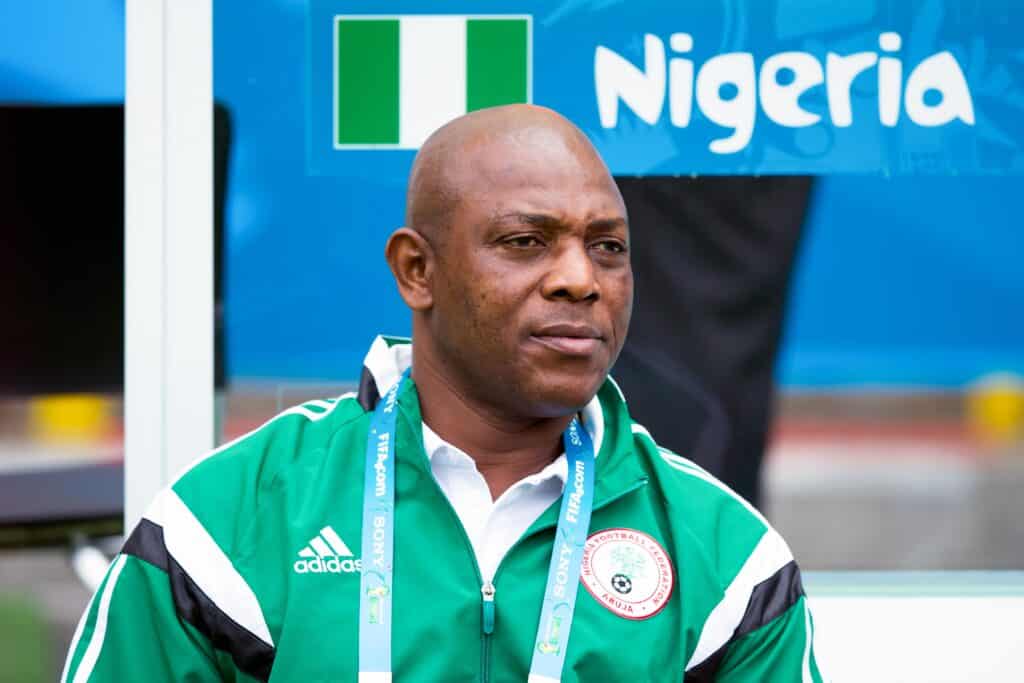
It was not all bliss, though: after reaching each of those peaks, Keshi was temporarily out of the job.
The only significant blip, however, was his inability to lead Nigeria to the edition of the AFCON where they could have defended their crown, finally vacating his position in 2015 — a year before his sad demise.
Sunday Oliseh
Following a brief caretaker spell for Shaibu Amodu (also now deceased), Oliseh was appointed as Keshi's substantive successor, and while the former Ajax Amsterdam man was nowhere near as experienced as his former international teammate at the time, his own tenure was no less torrid.
Just two of Oliseh's 14 games ended in defeat, but that period was lit up by more controversies than anyone could have been reasonably comfortable with.
Nigeria’s home-based team crashing out of the African Nations Championship (CHAN) was only the beginning of the end, sparking a chain of events — featuring unsavoury YouTube rants and all — that eventually saw Oliseh decide he had had enough after just eight months at the helm.
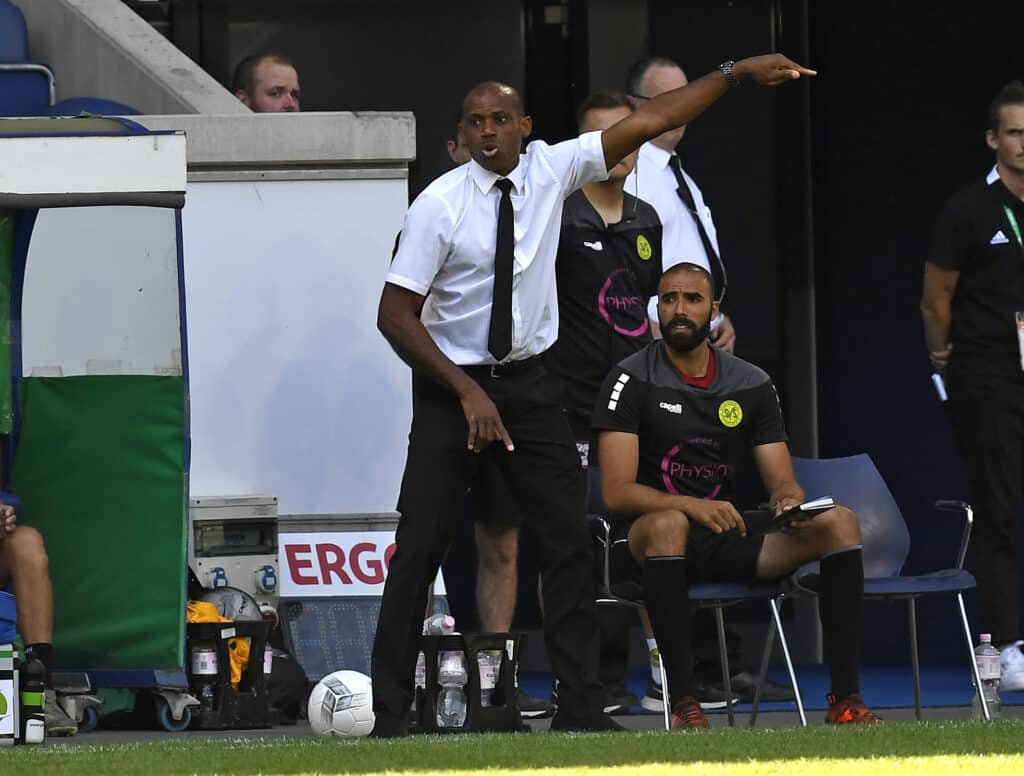
To sum up his time in charge, let us just say Oliseh was not the only Nigerian relieved that it was all over.
Samson Siasia
After an impressive five-year period in charge of Nigeria's U-20 and U-23 national teams during which only two Lionel Messi-inspired Argentina sides ended his quest for global conquest (first at the World Cup, and then the Olympics), Siasia was made head coach of the senior team on the back of a poor 2010 World Cup under Swede Lars Lagerback.
It was hoped that Siasia would fare very well with a team featuring some of the stars he had helped nurture and groom in his previous positions, but, apparently, even that was not enough to set him up for success.
His tenure was short and forgettable, failing to qualify for the 2012 AFCON — the sort of thing hardly any Nigeria head coach ever survives.
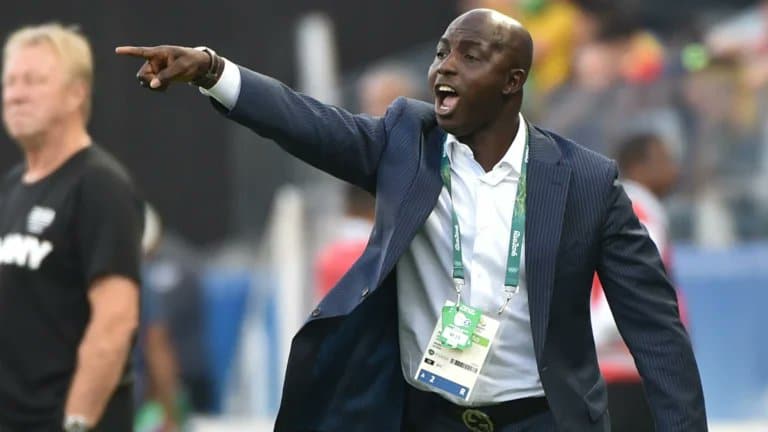
Siasia would have another run in 2016, briefly overseeing two games against Egypt (neither of which was won) in Nigeria's ultimately fruitless 2017 AFCON qualification attempt, before riding off with the Olympic team for another nearly triumphant campaign at the event.
Finidi George
It may be a good thing for Finidi George, then, that, of the above, only Keshi truly set standards that would take some beating.
And while the Nigerian Professional Football League-winning manager would surely aspire to those heights, such is his ambition, he will also be aware of the pitfalls and run-ins with the NFF that did not exactly make things easy for the likes of Keshi and Oliseh.
That said, he does get to build from a good base, with a team that almost won the last AFCON and which has the potential to go on to some great things in the future — starting with qualification for the next AFCON, and a return to the World Cup stage Nigeria has been conspicuously absent from following the Keshi era.

